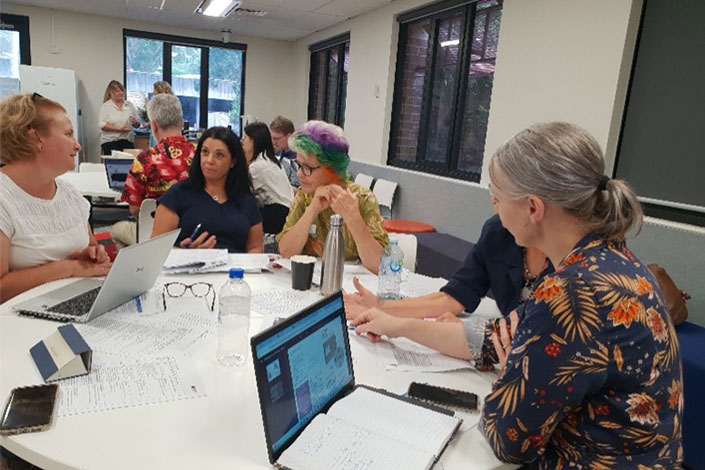A Q&A with Professor Linda Harrison
Professor Harrison, from the School of Education and the Centre for Research in Early Childhood Education (CRECE), discusses the benefits of the Observe, Reflect, Improve Children's Learning (ORICL) tool.
In this Q&A, we speak with Professor Linda Harrison from the Macquarie School of Education and Centre for Research in Early Childhood Education (CRECE) about the Observe, Reflect, Improve Children’s Learning (ORICL) tool and its benefits for early childhood education and care.
1. What is the ORICL tool and how does it benefit children and early childhood educators?
ORICL is an online professional learning tool that provides 117 stimulus items, with examples of children’s actions and interactions, to guide infant-toddler educators in their observation and interpretation of young children’s experiences in their education and care settings. ORICL is aligned with the principles, practices, learning outcomes and planning cycle set out in the Early Years Learning Framework for Australia (V2.0). The tool was designed to support educators to observe, record and reflect on each child’s learning, development and wellbeing, to inform planning and facilitate improved pedagogical practices.
2. Are there any initial findings from educators after using ORICL?
Yes, in our pilot study, many of the participating educators reported that using ORICL contributed to their understanding of young children’s learning and wellbeing. One participant said ORICL was “empowering” as it confirmed that she did “know the children well and where they are at” in their development. An educator with more than 20 years of experience in long day care said ORICL “reinforced what [they were] already doing, but also made [them] think about how to improve.” A family day care educator said she found ORICL was “inspirational” and a “good tool to help us think about practice.” These findings have been published in the Australasian Journal of Early Childhood.
3. This work is now a larger Australian Research Council (ARC) project being conducted in collaboration with 11 early childhood education and care partner organisations. Can you tell us more about who is involved in the project and what it hopes to achieve?
Our 11 not-for-profit partner organisations include highly regarded providers of education and care services and professional learning for educators, as well as peak bodies that provide resources for educators and advocate for policy and practice improvements. Collaboration and co-design with the education and care sector was fundamental to our development of the ORICL tool, and to ensuring the successful implementation of the ARC project. We meet with our partner organisations at key points in the ARC project to share progress, seek advice and feedback, workshop ideas, and develop innovative new methods for evaluating the use of ORICL.

Early Childhood Australia and Family Day Care partners, Macquarie University and Charles Sturt University (CSU) research assistants, Macquarie University and University of New South Wales (UNSW) data specialists
4. What stage of the project are you currently at?
ORICL has progressed through a series of stages, supported by funding from Charles Sturt University, Macquarie University, the Foundation of Early Childhood Graduates, and the ARC. The first stage included our initial co-design and piloting of the ORICL tool with 21 educators working with 66 individual children. The second stage involved transferring ORICL to a web-based platform and piloting the digital format with a small number of educators from partner organisations. The third stage, which we are currently rolling out, will recruit a large national sample of long day care and family day care services and educators to use ORICL in their work with children and families. In the next stage, to commence later this year, we will invite a selection of these services and educators to participate in the case study component. This stage will gather examples of educators’ planning and on-site interviews to explore their use of ORICL in more depth.
5. There is a PhD scholarship opportunity currently available. Can you tell us what is involved and how can people apply?
Macquarie University has provided funding for a three-year PhD study aligned with the ORICL project. The successful candidate will be immersed in the project, working with the research team to gain an appreciation of research collaboration, promotion and communication, and diverse methods for data collection and analysis. ORICL offers many opportunities for graduate students to develop critical research skills in investigating a specific topic of interest. Details about this scholarship can be found on the Macquarie University website Observe, Reflect, Improve Children’s Learning (ORICL) | Research scholarship | Macquarie University (mq.edu.au). This page has further information on how to apply, eligibility, and the application process.